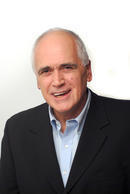Creating A Healthy Workplace – Guest Blog

 In the workplace, a total of 3.2 days per worker are lost each year through workplace stress*, so it’s important that business leaders are mindful of work/life balance for the optimum mental wellbeing of their employees, and the creation of a healthy workplace.
In the workplace, a total of 3.2 days per worker are lost each year through workplace stress*, so it’s important that business leaders are mindful of work/life balance for the optimum mental wellbeing of their employees, and the creation of a healthy workplace.
Mental wellbeing in the workplace continues to be a major issue for all industries. In fact, TEC members have described stress and anxiety as one of their biggest workplace concerns. This has directed many discussions in terms of developing strategies that can be employed by businesses to ensure staff are supported and day-to-day operations can continue.
My advice for TEC members, and all businesses, is to identify sources of stress and anxiety to devise strategies that will help overcome these. Factors that may cause or contribute to mental wellbeing in the workplace include: meeting budgets and deadlines, working through financial worries (particularly for SMEs), absence due to illness and personal or professional conflicts in the workplace.
Technology has also lead to the increasing blurring of lines between work and personal life. As integrated mobile communication devices such as the iPhone and Blackberry continue to advance, it seems that work/ life balance is an outdated concept that is no longer possible. Instead, we should be striving for successful work/life integration.
Only thirty years ago, we had a relatively relaxed work/life environment where we had a predictable set of daily tasks and operated within a smaller geographic range, with slow but personal ways of communicating, including letters, fixed line telephone and face to face conversations.
Since the early eighties, the computer has increased our response capability. In the mid-nineties, the internet opened up the world to instant communication. Today, we’re perpetually glued to iPhones and Blackberrys. (But don’t forget there is an OFF button!)
As our expectations of rapid responses to incoming and outgoing communications increase, we need to learn to work smarter, using technology as our servant, not our master. We should be generating more personal time through its use.
As well as managing technology, there are some other strategies and techniques useful for managing stress and anxiety in the workplace whether you are an employee, manager, business owner or CEO:
- Time management is crucial to keeping stress under control during busy work periods – use time effectively by working from a list every day.
- Make your ‘to-do’ list work for you – when you are flat out, narrow the list down to ‘should-do’ and ‘must-do’ tasks.
- Peer support – sharing experiences from your workplace with peers or a mentor through memberships such as TEC, helps to narrow down the problem and is an opportunity to identify effective strategies.
- Don’t bottle up thoughts and feelings – there are acceptable and professional ways to express feelings in the workplace if there is a work related problem, which can become much worse when not shared.
- Be more assertive –don’t take a back seat and hope that everything will sort itself out, have the courage to address problems. A supportive work environment should encourage and assist staff to talk through problems or issues.
- The power of compromise – happy middle ground can be found through a conflict if all parties are willing to be open and cooperate with one another.
And finally…
Having fallen into all the traps myself when a busy CEO, I can offer one simple piece of advice – it’s simple but not easy – you just have to decide the hours you are going to work and stick to it. The trap we all fall into is putting off difficult or what seems complicated tasks to “when you can concentrate on it, like on the weekend when no one is in”. What dawned on me late in my CEO career was that if you give yourself seven days to do the job, guess what, you will spread things out that fills the seven days. I really admire the considerable number of women CEOs I work with who manage a successful business and they have two or three kids ! I don’t know how they do it but I bet they compartmentalise the key aspects of their life and focus when in each of them. I still don’t know how they do it. The point is if they can do it why can’t a lot more men manage themselves and their job in a similar way?
The other big trap I see especially with new CEOs in the job is that they think if they are not the last to leave and first to arrive and go in on weekends the staff and Board won’t think they are working hard enough. What a terrible example they are setting their staff (some of whom will no doubt try to beat the CEO at the game just so they impress) and what a terrible toll they and their family are paying. When I see this happening I see a CEO who needs help.
 Harvey Martin is the Regional Chair (Victoria) of The Executive Connection. Harvey’s CEO experience spans over 20 years across a range of organisations from larger corporates to SMEs and start ups. These organisations covered a number of industries from sporting goods and other consumer products, industrial fibreglass, commercial and industrial property development and a national franchise business he established under licence from the USA. More recently he has consulted in marketing and strategic management for a wide range of organisations in the agricultural, manufacturing, IT and service industries, taking a more coaching and mentoring role to CEO’s in the last few years. This has led to some Board appointments in both the public and private sectors. http://www.tec.com.au/
Harvey Martin is the Regional Chair (Victoria) of The Executive Connection. Harvey’s CEO experience spans over 20 years across a range of organisations from larger corporates to SMEs and start ups. These organisations covered a number of industries from sporting goods and other consumer products, industrial fibreglass, commercial and industrial property development and a national franchise business he established under licence from the USA. More recently he has consulted in marketing and strategic management for a wide range of organisations in the agricultural, manufacturing, IT and service industries, taking a more coaching and mentoring role to CEO’s in the last few years. This has led to some Board appointments in both the public and private sectors. http://www.tec.com.au/

